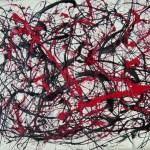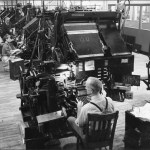Science
Continuing the current discussion of the questionable quality of popular science journalism, British researcher Simon Baron-Cohen weighs in at the New Scientist with his personal experiences of misrepresented research. Baron-Cohen complains that earlier this year, several articles on his work linking prenatal testosterone levels to autistic traits, including coverage in the Guardian, were titled and subtitled misleadingly:
It has left me wondering: who are the headline writers? Articles and columns in newspapers are bylined so there is some accountability when they get things wrong. In this…
tags: Birdbooker Report, bird books, animal books, natural history books, ecology books
"One cannot have too many good bird books"
--Ralph Hoffmann, Birds of the Pacific States (1927).
The Birdbooker Report is a special weekly report of a wide variety of science, nature and behavior books that currently are, or soon will be available for purchase. This report is written by one of my Seattle birding pals and book collector, Ian "Birdbooker" Paulsen, and is edited by me and published here for your information and enjoyment. Below the fold is this week's issue of The Birdbooker Report which…
Faith in science and social conservatism:
Except for crime and gun control, faith in science is associated with socially liberal positions. For guns and crime, the direction of the relationship is liberal, but the relationships are not statistically significant.
I've dug through the GSS on this and this seems about right. Even on topics where many would assume that conservatives trump liberals, there isn't a strong difference. For example, Genetically Modified Foods:
The main exception seems nuclear energy. But the key is social liberalism; there's a lot of sympathy for economic…
OK, "quiz" isn't really the right word, because I don't know the right answer. But here's something weird that I noticed a while ago, and since I needed an excuse to fool around with video a bit, I thought I'd shoot some pictures of it:
Here's the deal: My cell phone is gently curved on one side. If I put the phone on a table with that side down, it will spin reasonably freely, with very little effort. If I try to spin it fast, though, it very quickly develops a pronounced wobble that damps out the spin very quickly. You can see it in the YouTube video above.
So, the question is: Why does…
The Tuguska event of 1908 is one of the most frequently "explained" events in recent history, trailing only the Kennedy assassination. The arXiv blog reports on the latest explanation of what knocked down all those trees without making a giant crater:
Now a new analysis by Edward Drobyshevski of the Russian Academy of Sciences in St Petersburg Russia claims to have solved these problems. Drobyshevski concludes that the object that hit in 1908 was a comet (as have many scientists before him). But unlike the others, he has been able to calculate that this comet hit the Earth's atmosphere almost…
It looks like there are quite a few police officers in Germany with egg on their face right now. They spent several years, thousands of man-hours, and over $14 million trying to track down a criminal mastermind, only to discover that they were chasing lab contamination. Sadly, I am serious about this. From a 2008 Telegraph article:
Police in Germany have stepped up the hunt for a serial killer nicknamed "the woman without a face".
The mystery woman has been linked by DNA to six murders and a string of thefts in a 15-year spree in three countries. Her latest victims may be three second-hand…
As a scientist with a blog, I am apparently contractually obligated to link to the New York Times Magazine profile of Freeman Dyson. If I don't, they'll take away my privileges as a scientist. (Of course, since those consist mostly of the right to review grant applications for the NSF, maybe it'd be worth the risk...)
I don't mind linking to it, though, because it is a nice piece of work. The focus is mostly on Dyson's (relatively) recent climate skepticism, because that's a high-profile offbeat opinion to have these days, but it gives a nice sketch of his background and accomplishments.
One…
The Female Science Professor had a nice post about working with someone who was afraid to write a paper:
Out of desperation, I told the graphophobe to meet me at a particular cafe at a particular time, with the latest draft of the manuscript and whatever other notes or references he needed. We met, I copied the manuscript to my laptop, scrolled to the first extremely incomplete section of the text and said "Tell me what you think should go in this section." He talked and I typed.
We worked our way through the manuscript that way, discussing each section. What should go in it? What was the…
Photo by Tracy Woodward, WaPo
Yesterday, zookeepers at the National Zoo's Conservation and Research Center discovered two newborn clouded leopard cubs in the enclosure of their mother, Jao Chu. This is a big deal because it is notoriously difficult to breed clouded leopards in captivity: males can attack and kill females with whom they aren't properly bonded, and captive mothers often inadvertently or deliberately kill their cubs. Because of that risk, these two cubs were taken from Jao Chu to be raised by human researchers.
Jao Chu and her mate Hannibal were imported from Thailand last…
A press release from Caltech about Steve Koonin, who was the boss of my bosses during a SURF project and was a student of my undergraduate advisor at Caltech (and also responsible for severe drops in GPAs for many of the physicist students I knew at Caltech :)):
Steven Koonin, visiting associate in physics and former provost of Caltech, has been nominated by President Obama to serve as Undersecretary for Science in the U.S. Department of Energy. The position requires Senate confirmation. Koonin is currently chief scientist for BP, where he is responsible for guiding the company's long-range…
I fell behind on course reports from my modern physics class a few weeks back, but I do mean to get back to them, when I have more time. The material remaining is the end-of-term sprint through a bunch of topics in modern physics-- three classes on atoms and molecules, three classes on solid state physics, three classes on nuclear and particle physics.
It's a mad dash through a lot of material (as the eventual course-wrap-up post will make clear), which raises one of the eternal questions of academia:
When teaching undergraduate students about a discipline, which is more important, breadth or…
Steve calls me out for not commenting on new stories about "cold fusion":
Becky and I have been having much more regular access to the internet since the power was fixed. We check e-mail just about everyday and can even skim yahoo news. Or Professor Orzel's blog. I heard on BBC radio yesterday that there are people who have claimed to have evidence of cold fusion - which made me immediately think of a physics graduate who worked on sonoluminescence (bubble fusion) and of a talk given at Union last year about bubble fusion. Which made me immediately think of Professor Orzel and his skepticism…
It's Ada Lovelace Day!
Ada Lovelace (1815 - 1852) is often referred to as the world's first computer programmer. The daughter of the famous poet Lord Byron, and the admired intellect, Annabella Milbanke, Ada Lovelace represented the meeting of two alternative worlds: the romanticism and art of her father versus the rationality and science of her mother. In her attempt to draw together these polar opposites and create a 'poetical science' during the Victorian age, Ada collaborated with the renowned mathematician and inventor, Charles Babbage. (source)
I'm betting famous names like Marie Curie…
Via Morbid Anatomy: the Discovery Channel series "How It's Made" features the construction of modern anatomical models. You can watch the five-minute segment after the fold.
Discovery Channel, "How It's Made", Season 11, Episode 2/Part 1
The rise in eczema, or asthma, or the general return of infectious disease, reminds one that though we live in a post-Malthusian Age generally, many of the truths of earlier times hold. While with physical technology we can rest assured that the feature-set and power will increase monotonically over time as if it is a natural law, biological or social processes are much more halting and subject to reverse. I recall several years ago that some steakhouses were heartened, so to speak, about the widespread usage of statins, since they assumed that this would result in greater comfort with…
A few days ago I had a brief post on a team of Spanish kids who used a latex balloon and a $60 camera to take photographs of the earth from near the edge of space. My info was sketchy at the time, but an alert reader found and sent me a link to the group's website, which has a nice account, with many photos, of the operation. The page is in Catalan but has a pull-down Google translation option up near the top so you can quickly have it translated. It's a great look at the intense excitement of shoestring-budget science.
Here's the crew:
the trajectory of the balloon:
And along the way,…
Linotype operators work in the composing room at the P-I building at 6th and Wall Street in December, 1948. (Seattle Post-Intelligencer photo)
To follow up on my post about science journalism and blogs, a few reading links dealing with science in society, journalism, and the transformation of media.
First, Peter Dizikes revisits C.P. Snow's ubiquitous "two cultures", fifty years later:
"The Two Cultures" actually embodies one of the deepest tensions in our ideas about progress. Snow, too, wants to believe the sheer force of science cannot be restrained, that it will change the world -- for…
From the recent documentary Ants: Nature's Secret Power, a glimpse of how researchers study ant behavior in the lab:
My computer is starting to run slow in that way that indicates that either Microsoft has released an important update, or it's just been on too long without a reboot. Either way, I need to clear some browser tabs before restarting, and there are a bunch of articles that I thought were too interesting to put in a links dump, but where I don't quite have a clear enough opinion to write a blog post. These split into two rough groups, both of which are concerned with definitions.
One bunch of posts has to do with the recent poll about science knowledge, showing that a majority of Americans are…
The GSS has a variable, ODDS1, which represents the question:
Now, think about this situation. A doctor tells a couple that their genetic makeup means that they've got one in four chances of having a child with an inherited illness. Does this mean that if their first child has the illness, the next three will not have the illness?
The obvious answer is that each child is an independent "trial," and so has a 1 out of 4 chance. Only 10% of the respondents answered incorrectly. Below are the frequencies against some variables of interest (whites only, sample sizes 1500-2500).
The…


